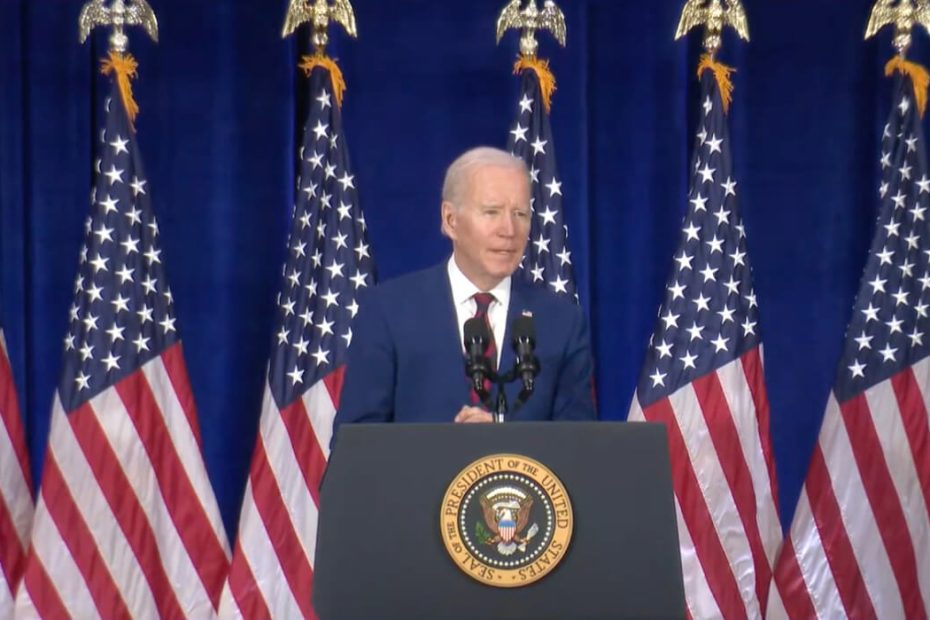
The Biden administration is facing strong criticism from sportsmen organizations and advocates over recent proposals to ban lead ammunition use on federal hunting lands. Critics argue that these proposals could pave the way for more aggressive measures against hunting and fishing.
The U.S. Fish and Wildlife Service (FWS) is anticipated to release draft guidelines that would significantly restrict sportsmen’s equipment on federal refuge properties. A ban on lead munitions and fishing tackle would eliminate the use of affordable equipment, increasing the overall cost of these sports.
Todd Adkins, the vice president of government affairs for the Sportsmen’s Alliance, a pro-hunting group, told Fox News Digital, “Raising the cost of hunting, raising the cost of fishing and raising the cost of our crowd doing their thing is objective number one, without a doubt, because they know if you make it more expensive, less people will do it.”
Further, Adkins explained, “When it comes to the FWS issuing a ban on various refuges as they expand hunting opportunities — that’s all we’re really asking. Number one, are you finding specific problems related to lead exposure at specific national wildlife refuges? And number two, have you evaluated the consequences that this ban will have on the users, both hunters and anglers?”
Environmental groups have consistently claimed that the use of lead ammunition has a negative impact on wildlife, waterways, and drinking water. However, advocates for hunting and fishing have stood their ground that there is no scientific evidence to support such claims.
Why Lead Ammunition Bans Now
This ban is in response to a 2021 suit against the federal government by the Center for Biological Diversity – an advocate for stringent wildlife protections – over a Trump-era rule which expanded hunting and fishing access to 2.3 million acres of federal wildlife refuge.
In the 2022 settlement, the FWS promised to expand lead ammunition restrictions across various locations beginning in 2026. The proposed changes are expected to be published as part of the 2023-2024 annual rule to be released later this month.
The executive vice president for international government and public affairs at the pro-hunting Safari Club International and a former senior Interior Department official, Benjamin Cassidy, told Fox News Digital, “Since this administration’s been in, the numbers [of lands open to sportsman access] have shrunk every year to lower numbers. It’s really just kind of been masking tape over what’s really been banned. We’ve seen millions of acres closed and we’ve seen lead bans being put in place.”
The 2022-2023 rule, finalized in September, had only banned lead ammunition in the Patoka National Wildlife Refuge in southern Indiana. The 2023-2024 proposal is expected to not only expand the prohibition of lead ammunition but also ban recreational shooting on approximately 94,900 acres.
The agreement with the Center for Biological Diversity further requires the FWS to advise hunters to use bear spray against a grizzly bear if attacked, rather than resorting to lethal means.
The Larger Impact of Lead Ammunition Bans
Further, Adkins explained, “The proposed lead ban on refuges kicks open the barn door to banning lead ammunition and tackle on all federal land, including National Forests, Bureau of Land Management Lands, National Preserves, and other areas. It provides a legal basis for radical animal rights and environmental groups to sue the federal government to force additional lead bans.’
“In effect, President Biden is handing extremists a howitzer to fire at the Federal Government until the use of lead in ammunition and tackle for hunting and fishing is banned everywhere,” Adkins exclaimed.
Additionally, Adkins stated, “The most stunning and even insulting thing about this proposal is that it has been done with no consultation with the very people, hunters, anglers and trappers, who pay the lion’s share of conservation funding in the United States.”
SEE MORE: Environmentalists Sue Over Trump Rule that Expanded Hunting and Fishing
In an interview with Fox New Digital, Montana Rep. Ryan Zinke reminded, “In conservation, the very essence of Teddy Roosevelt was multiple use, public access, the best science, greater good, longest term.”
Continuing, Zinke proclaimed, “That’s the American conservation ethic, which largely stems from Roosevelt and Pinchot and managing our forests. Hunting was core to that.”
